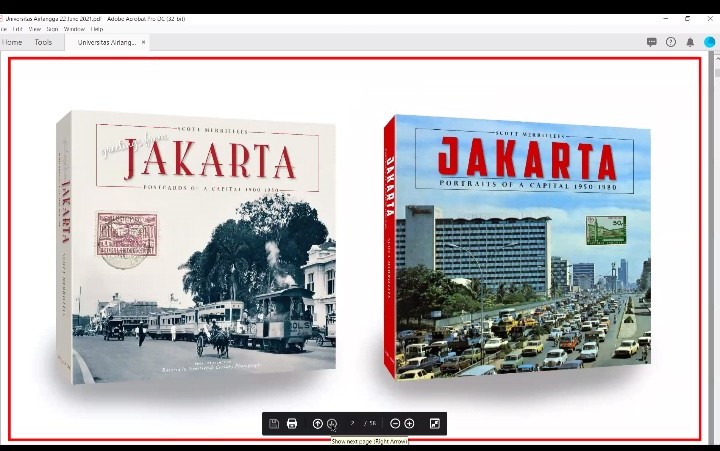UNAIR NEWS – Undergraduate Study Program (S1) – the Department of Historical Science, Universitas Airlangga has a specialization in urban history, especially Indonesian cities during the Dutch colonial period, Japanese occupation, and post-independence. Therefore, the Department of Historical Science UNAIR invited a writer, collector, and researcher of ancient Indonesian postcards from Australia, Scott Merrillees, to broaden the knowledge of Historical Science students about urban history.
Scott gave a guest lecture on ‘Jakarta: Building a Machine Time 1860-1980.’ The guest lecture for the Urban History course was held on Tuesday, June 22, 2021, via zoom.
So far, Scott has written four books about Jakarta, Batavia in Nineteenth-Century Photograph, Jakarta: Portraits of a Capital 1950-1980, Greetings from Jakarta: Postcards of Capital 1900-1950, and Faces of Indonesia: 500 Postcard 1900-1945. He wrote the four books due to his desire to recreate Jakarta through photographs, postcards, and maps.
“What was Jakarta like in the past? Through photographic images, we can find out how satisfying the depiction of Jakarta was at that time,” he added.
Furthermore, Scott added that the three books he wrote are like time machines. The time machine is important because most of Jakarta’s buildings before the 1960s have been destroyed and included in urban archeology.
“Another interesting thing is related to the evolution and development of Jakarta. What are the stages of development and the main influence of Jakarta?” said Scott.
Scott said that the concept of place is also essential because it can identify the significant location exactly.
Besides, Scott said that there are four types of memories regarding the evolution and development of cities: the evolution and development of cities, the evolution and development of urban areas, the evolution of establishments in cities, and the evolution and development of companies and communities within cities.
“Basically, Jakarta is divided into three periods: the VOC Era 1619-1799, the Dutch Colonialization in 1800-1942, and the Post-Independence Indonesia in 1945 until now,” he added.
Regarding the 494th Anniversary of DKI Jakarta, Prof. Dr. Purnawan Basundoro, M. Hum, as the moderator, said that the guest lecture was not directly related to the anniversary of DKI Jakarta, which fell on Tuesday, June 22, 2021.
“Specifically, no, but because everything is related to history, they intersect each other,” he concluded. (*)
Author: Dimas Bagus Aditya
Editor: Nuri Hermawan (YA/AP)





